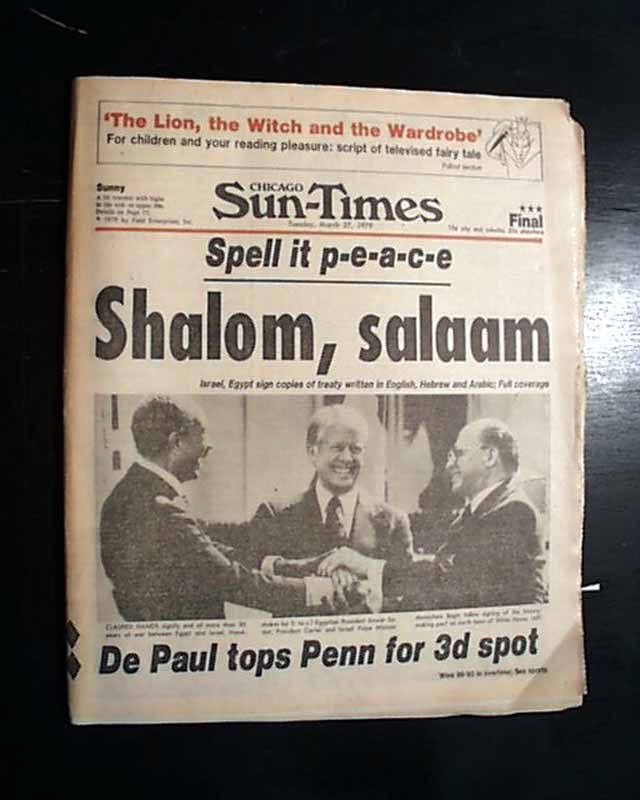Early in his presidency, Carter and his Secretary of State, Cyrus Vance, pursued intensive negotiations with both Arab and Israeli leaders. They were especially encouraged by President Anwar el-Sadat of Egypt. Sadat wanted Sinai, a region Israel had occupied since their victory in the 6-Day-War, to return to Egypt. Carter also met with Israeli Prime Minister Begin and found that he was willing to consider Sadat's conditions in exchange for lasting peace. In 1977, Sadat made his pursuit for peace with Israel known when he traveled to Jerusalem to meet with Begin. This was frowned upon by most of the Arab world, but Sadat continued to pursue peace with Begin.
In early September 1978, the two leaders agreed to meet President Carter at the U.S. presidential retreat at Camp David, Maryland, to negotiate an agreement. The event labeled the Camp David Summit, was held from September 5 to the 17th and was a pivotal moment in the history of the Arab-Israeli conflict as well as for U.S. diplomacy. The U.S. Middle East experts produced a draft treaty text which served as the basis for the negotiations and would be revised countless times over the next two weeks. After extremely challenging talks and individual meetings with President Carter, Sadat and Begin finally came to an agreement on September 17, 1978. The Camp David Accords was the first peace agreement between the state of Israel and one of its Arab neighbors and it laid the ground for diplomatic and commercial relations between the two nations.
Seven months later, on March 16, 1979, the Egyptian-Israeli Peace Treaty was formally signed. In a ceremony at the White House, Sadat and Begin signed a historic peace agreement that ended three decades of hostility between Egypt and Israel. The treaty consisted of Israel agreeing to withdraw from Sinai, and Egypt promising to establish diplomatic relations between the two countries and to open the Suez Canal for Israeli trade. Begin and Sadat were awarded the 1978 Nobel Prize for Peace for their achievements. However, Anwar Sadat’s peace efforts angered the Arab world and Egypt was suspended from the Arab League. In 1981, Sadat was assassinated in Cairo by Muslim extremists. The peace process continued even after his death and in 1982 Egypt formally established diplomatic relations with Israel.


